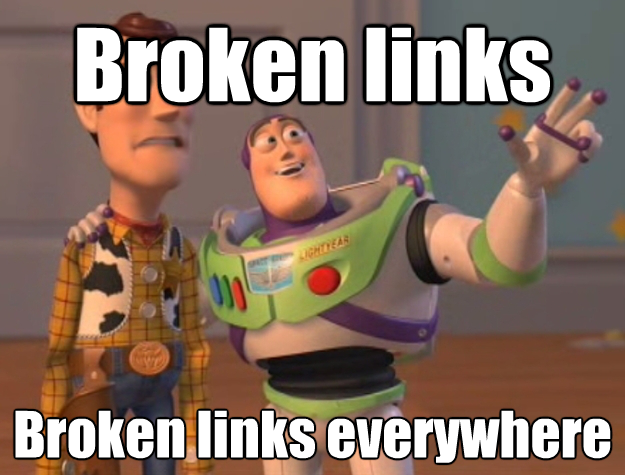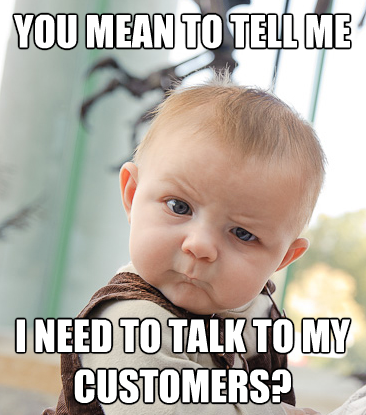In a world where 70% of customers visit your website before making their first purchase decision, it’s no longer okay to say, “I don’t get that website stuff,” and also not pay someone to fix problems. If even 10% of those potential customers I just mentioned that visit your website decide not to buy, that’s a 7% decrease in sales.
For me, a 7% decrease in sales is tens of thousands of dollars. For that amount of money, I can justify spending either my own time or my own money to fix all potential problems.
Here’s how to fix the biggest problems I see with most broken business websites.

Fix broken links.
After spending two minutes on a friend’s business site and encountering just the right number of broken links in just the right places the other day, I gave up trying to find what I needed and actually just went to Google. Google sent me to a competitor’s site, where I found what I needed.
And, I spent two minutes on the site. Your potential customers won’t put up with more than one or two broken links to things they actually want to see before they just go back to Google and search for it – where by the way they’ll be shown all of your competitors.
Don’t let this be you. Go to your homepage, hold down control, and click every link you can find. Holding down control ensures they all open in new tabs so that you don’t have to navigate back and forth. Then, on each new page, hold down control, and click every link. If you find a bad link, remove it or find the correct URL and fix the link.
You can also check Google Webmaster Tools (if you’ve submitted your site and preferably your sitemap) or use a service to crawl your website, but if the website is under 100 pages, I actually prefer to do this by hand so that I get a feel for the user experience.

Your widgets are hanging out.
Want to show that you’re on Facebook, Twitter, Tumblr, Pinterest, MySpace, Friendfeed, Orkut; that you have popular posts, comments, activity; and that you like other blogs, have a family, take pictures, and have a mission statement?
Great, but don’t.
Sidebars are like signs on the freeway. They are very important, but if they have too much going on, drivers stop paying attention to the road and never get where they need to go (ie. they crash). Keep your sidebars simple and only include what is really valuable to your visitor.
Things get worse when your widgets and badges are broken. A broken sidebar widget is like a busted or graffitied shop window. Who cares if the shop is open… If the business owner doesn’t take enough pride in his business to fix his windows, no one is going to bother patronizing his business. Plain and simple.

Look at it from the customer’s perspective.
I’m just as guilty of this one as anyone. I get working on a website, put in a ton of hours, and suddenly realize that it doesn’t address anything my customers want. It’s too wordy, too cool, over-designed, and filled with jargon, and your website probably is too.
Every once and a while, it helps to get a customer’s perspective. With one client that ran a retail store, we posted a message on Facebook that said, “We’re giving 10% off one item each to the next man and woman that come into the store and spend 15 minutes giving us their opinions on our website.” In 9 minutes, we had the first man, and in 13, we had the first woman. It costs the store $20, and we guessed we made $5,000 in additional sales over the next 3 months.
Two of my other favorite options are UserTesting.com and mturk (or SmartSheet if you prefer, but it’s the same thing really). With UserTesting.com, you get a real, quality walkthrough of your website, but it’s fairly expensive compared to the other options. With mturk, you can get a lot of answers for cheap (like in the video below).
Either way, your website needs to address your customers' interests not yours, and very often, the only way to find out whether it does is to give your customers an incentive to give you the feedback you need to win yourself that extra 7% of new business.
Don't ignore it.
It always surprises me when someone says, "I've never heard/heard of/watched/etc this show/song/person/etc," and says it as if they're proud of their ignorance. When did it become cool to not know things?
The same goes for your website. Being ignorant isn't cool, and even worse, it costs you money, and honestly, do any of the things I listed above really sound so difficult that even the average business owner couldn't do it themselves?